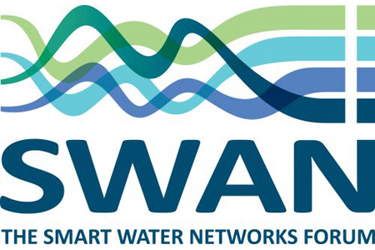Key Insights From The Leading Global Smart Water Event

The SWAN 10th Annual Conference welcomed 400+ attendees from 32 countries, including a record 64 unique utilities. Hosted virtually by SWAN, the Smart Water Networks Forum, this was the largest global smart water and wastewater event. On the 22nd and 23rd of July 2020, SWAN member Ovarro led two expert interactive roundtable sessions on “Leak detection at your desktop” and “How will you keep the water flowing in challenging times?” Below, we interviewed Ovarro about key takeaways from their discussions and how these insights can benefit the water sector.
Ovarro recently merged two strong companies, Servelec Technologies and Primayer. How does this shape Ovarro’s smart water mission?
The water technology market is entering an extraordinarily vibrant phase. Exceptional efficiencies are sought by water suppliers and they will only be achieved through collaboration and advanced smart technologies.
Servelec Technologies and Primayer had developed great technologies and unrivalled in-house expertise. In coming together as Ovarro and integrating our teams in R&D, operations, and at the executive level, we are streamlining our offer across industries and geographies. Having a single brand to wrap around this unique integrated offer is the most effective way of delivering to customers.
Tightening regulatory drivers mean water utilities and municipalities around the world are expected to do more for less. There are also considerable strains on our natural resources and water losses through leakage are a massive issue. Ovarro’s combined solutions tackle these issues head on.
Smart water, for both clean and wastewater, allows us to use data to make better decisions, connect people and facilities, and understand how people interact with technology.
Ovarro’s first roundtable covered the ongoing pandemic. How have the industry’s priorities evolved and what are key takeaways for the future?
We and our customers and suppliers have weathered the COVID situation well. Technology has allowed us to work remotely, and in some cases, more efficiently. However, none of us should forget the costs incurred by individuals working remotely and the impact on people personally.
COVID has shrunk the world. More communication across great distances has enabled Americans to see how water is run in India and vice versa.
The past six months haven’t changed our priorities to work for a more efficient, more connected world. Working digitally is different, but not terrible. Automation and remote operations are higher priorities, and, consequently, cybersecurity too. Integration (interoperability) of hardware, software, and organizations is a growing challenge. We understand that working to a clear robust strategy is crucial and look forward to embracing new opportunities as we emerge from COVID lockdown.
Water loss is a key global utility challenge. What were the main insights from Ovarro’s second roundtable and how can countries learn from one another to improve their management strategies?
Participants joined our roundtable to learn and discuss how principles and practices of leak detection (quantitative water management) in clean water could be applied to wastewater and water quality.
We discussed integrating leakage, wastewater, and quality data on one platform, and shared the challenges of accessing servers and hosting data.
Countries could certainly learn from one another by comparing leak data but would need to heed local customs and circumstances. Urbanized Japanese water suppliers operating under particular legal and political systems have different challenges to those of Indian water companies supplying rural villages.
Does leak detection also relate to wastewater systems? If so, would the same principles apply and how do you see this field developing?
It isn’t yet common practice to log flow, temp. and level data for wastewater, but maybe it could and should be. Although our main concern in this roundtable was with leakage from pressurized clean water pipes, it was interesting to consider the converse: measuring saltwater ingress into waste pipes. Where wastewater is discharged into the sea, this is a particular problem and will be exacerbated by rising sea levels caused by climate change.
Advanced remote telemetry and network logging gives us the smart data without which we will not be able to run the smart cities of the future.
Interested in accessing all the valuable insights from the SWAN 10th Annual Conference? These include 8 panel recordings and presentations, 4 keynotes, 12 roundtable recordings with key takeaways, as well as a virtual Swag Bag with cutting-edge industry reports. Conference materials are available free for SWAN members and for purchase for non-members. Learn more HERE.
